Virginia Hits Energy-Efficiency Milestone
Ranks No. 1 in South, Breaks into Top 25 in New Ranking
The Virginia Energy Efficiency Council heralds a new research report, released today, that names Virginia as the regional leader of the South for its energy efficiency practices.
Virginia had its best year on the annual State Energy Efficiency Scorecard, a nationwide analysis of states based on “their policy and program efforts to save energy and pursue efficiency as a cost-effective, critical tool for slashing emissions and meeting state clean energy goals.”
“We’re thrilled to see Virginia named as a state to watch and break into the Top 25,” said Chelsea Harnish, executive director of the Virginia Energy Efficiency Council (VAEEC). “This is a reflection of the hard work that went into passing the Virginia Clean Economy Act and the efforts of the energy efficiency industry in the Commonwealth.”
The annual scorecard is published by the American Council for an Energy-Efficient Economy and can be found at aceee.org. Among the report’s findings:
“Virginia was among the top energy stories of 2020, creating its first-ever clean energy standard and becoming the first state in the Southeast with a 100% clean electricity goal. The Virginia Clean Economy Act also established an energy efficiency resource standard that sets multiyear electric savings targets for utilities and includes important measures to support low-income customers and reduce energy burdens. The governor also signed HB 981, making Virginia the first southern state to join RGGI, with proceeds going toward energy efficiency, renewable energy, and climate mitigation measures.”
As mentioned at our Spring 2018 Meeting, the final Uniform Statewide Building Code (USBC) was published in the Virginia Register on April 30th. There is currently a 30-day public comment period open for any citizen who has concerns regarding these regulations.
If you have been following this process, then you will recall that VAEEC, in concert with our members and partners, was successfully able to work with home builders and code officials to include more energy efficiency measures in this new USBC update.

Initially, we anticipated the final regulations back in December with an effective date of July 1, 2018. Unfortunately, there was a major delay, which has now pushed the effective date to September 4th for the USBC and October 16th for the Fire Prevention Code. Earlier this week, we learned that this will most likely cause a delay for the next cycle update. It does not look like there is an appetite to start the next update cycle in 2019, as originally planned.
We will keep you posted as we learn more.
The VAEEC has been focused on advancing Commercial Property Assessed Clean Energy, or C-PACE, financing across the Commonwealth for the past few years. Since Virginia’s C-PACE law requires interested localities to develop and implement their own C-PACE program, start up can be on the slow side. However, we’ve seen a lot more traction lately thanks in part to the launch of Virginia’s first C-PACE program (in Arlington County) and the recent release of C-PACE resources for local governments.
Program Status in Virginia
Over 30 states and Washington, D.C. have approved C-PACE programs. Virginia joined this growing list in 2009 when it first passed C-PACE enabling legislation, which was later amended in 2015. Our C-PACE law includes all new and existing commercial, industrial, multifamily residential (over four units), and nonprofit buildings.
Arlington County’s C-PACE program officially launched in January of this year with the goal of improving new and existing buildings and helping the County’s Community Energy Plan implementation. Sustainable Real Estate Solutions, or SRS, was selected as their independent, third party program administrator to provide marketing, outreach, education, and quality assurance services.
During a January 2018 Board meeting, the Loudoun County Board of Supervisors unanimously voted to direct staff to develop a C-PACE program structure, evaluate options for Program Administration, and draft an ordinance. These items will be brought back to the Board at a future meeting for consideration. Similarly, Fairfax County is exploring the development of a C-PACE program. County staff are developing information for the Environmental Committee with the goal of presenting their findings to the Committee at their next meeting on June 12th.
In addition to providing educational information to Loudoun and Fairfax, the VAEEC is working with several other jurisdictions to answer questions and help with program development. Just last week, we worked with the City of Virginia Beach to organize a C-PACE informational session for all municipal staff in the Hampton Roads region. Representatives from the Cities of Norfolk, Portsmouth, and Virginia Beach were in attendance. We are also working with local Virginia chapters of the Sierra Club to host a C-PACE event on May 30th in the City of Alexandria. This event will be open to all C-PACE stakeholders in the area, including property owners, contractors, lenders, and municipal staff. We also continue to work with the City of Charlottesville and Albemarle County to answer staff questions and provide guidance on the resources currently available to localities.
Resources for Local Governments
In early 2018, the VAEEC released a Virginia model ordinance for localities to use when crafting their own program. The ordinance was commissioned following a review and input from a wide variety of C-PACE experts in the lending, local government, engineering, legal, and policy fields. This document incorporated key factors that we consider to be crucial to implementing an effective C-PACE program.
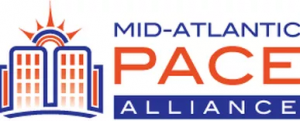
Accelerating C-PACE throughout DC, MD, & VA
As part of its mission to accelerate the development and utilization of C-PACE in the Mid-Atlantic region, MAPA is currently creating program implementation guidance. These regional guidelines will be a part of a toolkit created to help localities craft their own C-PACE program and is slated to be released by June. In conjunction with MAPA, the VAEEC will be hosting a C-PACE webinar in September that will walk attendees through both this toolkit and the Virginia model ordinance.
Virginia localities may review the program infrastructure implemented in Arlington County, including the County ordinance and other program documents. There is also the option to “ride” the C-PACE Program Administration contract with SRS, which would eliminate the need for a Request for Proposals (RFP) process and shortens the time to program launch. Localities may also contract directly with SRS if cooperative procurement is not preferred. Explore the Arlington C-PACE website for more information.
The VAEEC prides itself on being a neutral, trusted resource for any Virginia localities interested in C-PACE. We are actively meeting with local governments across Virginia to discuss all available options and help each locality determine which option best suits their needs. If you would like to know more about C-PACE, contact Jessica Greene at jessica@vaeec.org.
Passage of the Grid Transformation and Security Act of 2018 underscores the widespread, bipartisan agreement that energy efficiency is a smart investment for the Commonwealth. The VAEEC endorsed this legislation because of the tremendous potential opportunities for energy-saving programs that will be provided to Virginians over the next decade, including a combined commitment by the electric utilities to spend over $1.3 billion on energy efficiency programs. Unfortunately, all of that potential could easily evaporate away.
Last month, the State Corporation Commission (SCC) held proceedings to review proposed energy efficiency programs for both Appalachian Power Company (APCO) and Dominion Energy. Dominion Energy filed for approval to extend their low-income program for another five years. As defined by Virginia law, low-income programs are already determined to be in the public interest so these types of programs do not face as much scrutiny by the SCC.
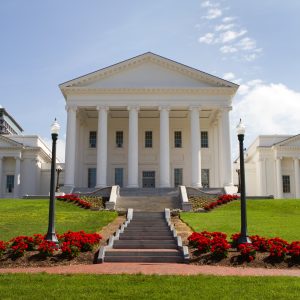 During the APCO proceeding however, the SCC staff recommended rejecting all five of the utility’s proposed residential programs. For three of these programs, the SCC staff stated that the utility had not taken into account new federal lighting standards taking effect in 2020. APCO decided to withdraw one of the programs for consideration due to this change but argued in their rebuttal testimony that the SCC staff’s interpretation of the new standard was incorrect for the other two programs since they would be direct install measures. Meaning, the program contractors would directly install the new LED light bulbs into sockets where incandescent light bulbs currently exist and would not be replacing CFL light bulbs with LEDs, as stated in the SCC staff response.
During the APCO proceeding however, the SCC staff recommended rejecting all five of the utility’s proposed residential programs. For three of these programs, the SCC staff stated that the utility had not taken into account new federal lighting standards taking effect in 2020. APCO decided to withdraw one of the programs for consideration due to this change but argued in their rebuttal testimony that the SCC staff’s interpretation of the new standard was incorrect for the other two programs since they would be direct install measures. Meaning, the program contractors would directly install the new LED light bulbs into sockets where incandescent light bulbs currently exist and would not be replacing CFL light bulbs with LEDs, as stated in the SCC staff response.
Similarly concerning was the SCC staff’s re-calculation of the cost-benefit tests for APCO’s appliance recycling program renewal, which incentivizes customers in their territory to recycle secondary appliances such as refrigerators. The SCC staff stated that the company miscalculated the cost-benefit tests of this program and performed new calculations, causing the program to fail two of the four cost-benefit tests.
According to experts I’ve spoken with, these new test results calculated by the SCC staff for the appliance recycling program are questionable since there is no customer cost for this particular program, therefore, it is unclear how this program could fail the Total Resource Cost Test but not the Utility Cost Test. Below is a table that was produced in a 2014 VAEEC report explaining the purpose of all four tests.
You may be wondering what this means, especially since this is all pretty technical, but what it boils down to is this: the substantial commitments to energy efficiency by both Dominion Energy and Appalachian Power Company in the omnibus utility bill will not come to fruition if energy efficiency programs continue to be scrutinized in this manner.
To be clear, the VAEEC supports the role that the SCC plays in scrutinizing proposals put forth by the utilities. That is their job and it is an important one. However, they tend to scrutinize energy efficiency programs more so than other proposals- including new power generating facilities. They do not view energy efficiency as a true resource when it comes to planning for future energy needs, when, in fact, it should be viewed as the critical first step. The kilowatt that goes unused is the cheapest form of energy. Allowing utilities to develop robust programs that help all customers make smart energy choices helps reduce the need for new, larger power generation facilities in the future. Energy efficiency isn’t a silver bullet by any means, but it is a valuable tool in the toolbox that should be utilized much more often than it is now.
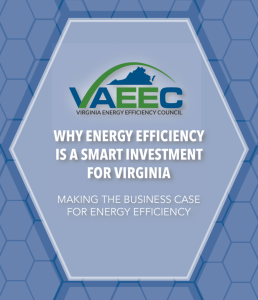
Investments in energy efficiency also mean new jobs in every corner of Virginia. In our report “Why Energy Efficiency is a Smart investment for Virginia,” we found that energy efficiency is a $1.5 billion industry in Virginia that supports approximately 75,000 jobs. Greater investments and growth in energy efficiency means more jobs in the local communities being served- jobs that cannot be outsourced out-of-state or overseas. This is the argument that we have made before the SCC over the last two years.
The SCC should evaluate the economic development and job creating benefits that these programs create in the local communities they serve. These same benefits are included in the analysis to build new fossil-fueled facilities, so why wouldn’t the same economic benefits for energy efficiency be factored in as well? Especially given that most of the jobs created by building new power plants are temporary construction jobs whereas the jobs provided by energy efficiency programs are year-round and last for the life cycle of program.
The vacant seat on the SCC provides a unique opportunity to unleash the economic potential of energy efficiency for the citizens of the Commonwealth. It is our hope that a new Commissioner is appointed soon and that he or she sees the value and tremendous opportunity that energy efficiency provides. Otherwise, we will be leaving over a billion dollars on the table.
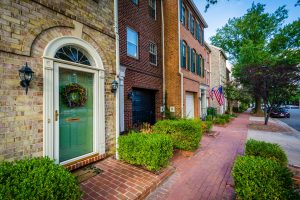 Now that the General Assembly session has ended, the VAEEC has switched its attention to several of our other priority programs, including the building code update process currently taking place here in Virginia. Southeast Energy News just had a good summary of this process that quoted VAEEC Board member Andrew Grigsby extensively.
Now that the General Assembly session has ended, the VAEEC has switched its attention to several of our other priority programs, including the building code update process currently taking place here in Virginia. Southeast Energy News just had a good summary of this process that quoted VAEEC Board member Andrew Grigsby extensively.
There are myriad important ways for you to support strong building codes in Virginia.
Public Comment Period Now Open and Webinar Available for Support
The Department of Housing and Community Development (DHCD) recently opened a public comment period seeking comment on the current draft code regulations that will run through May 26 (an extension from the original deadline of April 21).
We will be holding a members-only webinar on Thursday, April 20 at 12pm that will include:
- Update on proposals we support
- Key messaging points to consider for your comments
- Overview of VAEEC’s draft comments
- Q&A and on-the-spot feedback
Comments can be submitted through the Commonwealth’s Town Hall website.
Support Proposals in Person
On April 11th, the stakeholder workgroup, which is open to anyone to participate, will be meeting to discuss all of the energy proposals currently being considered for inclusion in the code update. Any member of the public can attend and speak in support of proposals that are being presented. We encourage anyone who is interested in this topic to attend to show your support for the following proposals* to require:
*You need to register on the DHCD website to view these and other proposals that are currently being considered.
There will also be a public hearing at the May 15th Board of Housing and Community Development meeting. The meeting will begin at 10am. We strongly encourage anyone who wishes to attend this meeting to get there early as seating is very limited.
Board Nominations Open
Finally, as we mentioned in previous communications, there will be one open seat on the Board of Housing and Community Development. We are seeking candidates who have a strong building science background and who live in congressional district one, which runs from Poquoson to Manassas (check here to see if you live in this district). If you are interested in being on the board and qualify for this seat, please email me at Chelsea@vaeec.org with your resume. We will be submitting the name(s) of our potential candidates to the administration in late spring.
Lowell Ungar, Senior Policy Advisor with the American Council for an Energy-Efficient Economy, wrote the following blog post on what the future of energy efficiency looks like under the Trump administration.
Barely one week into the new administration, we are far enough into the water to see dim shapes of the future ahead—some look more like sharks, some like rocks. Here’s some of what we see as of now:
Department of Energy programs face an undertow. In his confirmation hearing Secretary-designee Rick Perry was surprisingly supportive of DOE’s research and the national labs (for someone who once called to axe the entire agency). But President Donald Trump ordered a broad hiring freeze as a first step toward reducing the federal workforce. There is also reportedly a proposal to eliminate the whole Energy Efficiency and Renewable Energy Office (among others) in a broad budget outline that may be released in February. We are gearing up to support the efficiency programs when Congress takes up funding bills for the rest of 2017 in April and for 2018 later this year.
Appliance standards may be treading water for now. Although three recent standards could be subject to repeal under the Congressional Review Act, they do not appear to be prime targets, based on several meetings with congressional staff. On the other hand, five standards that were finalized but not officially published (as well as a manufactured housing standard that was under final review) may be caught in a temporary moratorium on regulations issued by Trump’s chief of staff Reince Priebus.
Vehicle standards face submerged reefs. The standard for trucks and buses also could be subject to congressional repeal, but it does not appear to be at the top of the target lists. On the other hand, Trump suggested he will ease regulations on car companies, which could include the fuel economy and tailpipe emissions standards for cars and light trucks. In any case, California will very likely maintain its emission standards, which apply in 12 other states as well.
Clean Power Plan may be dead in the water. The new White House website says Trump is “committed to eliminating…the Climate Action Plan,” and Environmental Protection Agency Administrator-designee Scott Pruitt said he continues to oppose the Clean Power Plan rules on carbon emissions from existing power plants. The next step may depend on an imminent ruling from the DC Court of Appeals. But regardless of the fate of this rule, the critical issues of clean air and public health will remain.
Tax reform and infrastructure are about to dive in. Trump continues to talk about infrastructure investment and cutting taxes as ways to spur economic growth. Congress is interested in tax reform but concerned about increased spending. These issues may be paired, starting with a 2018 budget resolution in late spring but extending into the fall. We have joined with other efficiency supporters to send up proposals for tax reforms and investments that increase efficiency. Still on shore is a farm bill that could foster efficiency in rural areas.
Regulatory reform is making waves. Trump signed an executive order directing that for every new rule, two be repealed, and limiting the combined cost (no mention of benefits) of the new and repealed rules, unless prohibited by law. He also has continued his statements against regulations, including a perhaps hyperbolic intent to “cut regulations by 75%, maybe more.” The House has already passed a few bills to make it more difficult to issue new rules or easier to repeal recent ones, but they do not appear to have the 60 Senate votes needed to overcome a filibuster. We and other efficiency supporters sent a letter cautioning Congress not to lose the benefits of appliance standards.
Federal efficiency policy may indeed be in troubled water, but we will seek to keep vital policies and programs afloat while also working at the state and local levels, which are partly sheltered. Following the example of our founders like Art Rosenfeld, our focus will remain on empirical research and analysis, which we trust will show that energy efficiency remains a crucial support for economic development, job creation, and consumer benefits.
 On January 10, 2017, VAEEC and LEAP made the case for Virginia adopting the model energy codes for new buildings before the EO-57 Working Group. This is a group convened by Secretary of Natural Resources Molly Ward per Governor McAuliffe’s Executive Order 57 in the summer of 2016; the group is charged with recommending concrete steps to reduce carbon pollution from Virginia’s power plants using existing authority; a public comment period is open through April 30.
On January 10, 2017, VAEEC and LEAP made the case for Virginia adopting the model energy codes for new buildings before the EO-57 Working Group. This is a group convened by Secretary of Natural Resources Molly Ward per Governor McAuliffe’s Executive Order 57 in the summer of 2016; the group is charged with recommending concrete steps to reduce carbon pollution from Virginia’s power plants using existing authority; a public comment period is open through April 30.
You can download our full presentation here. Learn more about EO-57 and submit your comments here.
Our case was greatly strengthened by the fact that two of the day’s six other presenters also recommended building codes as among the most cost-effective strategies for minimizing greenhouse gas emissions. They mentioned codes as preferred options, and we got into the details of how Virginia’s code update process works, where Virginia deviates from the model codes and what that costs new homebuyers, and how the Working Group’s representatives might intervene. We included data suggesting that even improved compliance with the current code would obtain real benefits for emissions reductions and for new homebuyers.
Our specific recommendations were as follows:
- Provide guidance to DEQ and DMME staff regarding how to participate in code update process (e.g., submit comments, support amendments).
Create an ex-officio seat for DMME staff on the Board of Housing and Community Development.
- Direct DHCD and DMME to enter into an MOU for information sharing.
- Ensure that it is the policy of DHCD to provide expert guidance regarding building science to inform the code update process.
- Fund/support a study of compliance with current codes.
The triennial update to Virginia’s building codes is an administrative process managed by the Department of Housing and Community Development and involving many stakeholders. Energy conservation is still considered a relatively minor issue by many of the current participants in this process. The VAEEC is committed to educating all participants about the many benefits of adopting and enforcing rigorous energy codes.
As we pointed out, strong codes are a win for:
- Environmental policy (global warming, resource use)
- Energy policy (costs, grid stability, predictability)
- The construction industry (deliver a more valuable, higher-quality product
- The mortgage industry (32% less risk of default (IMT/UNC report)
- Local jobs (framing and insulating don’t happen overseas)
- Affordable housing (lowers total cost of housing and increases predictability of monthly costs)
- Home buyers/renters of all kinds (comfort, savings, predictability, air quality)
Not to mention people want it. A 2013 survey by the National Association of Homebuilders reports that 9 out of 10 homebuyers are willing to pay 2-3% more for a home that includes permanent energy efficiency features.
You can dig deeper into building codes in our October 2016 blog post “The impact and next steps of Virginia’s Board of Housing and Community Development on building codes” or by watching our December 2016 webinar “Building Codes as Energy Efficiency Driver in Virginia.”
VAEEC staff and members will continue to advocate for advanced energy codes in Virginia through the coming year.
Chelsea Harnish is VAEEC Executive Director.
Andrew Grigsby is Executive Director of the Local Energy Alliance Program (LEAP) and a member of the VAEEC Governance Board.
A lot has happened on the building codes front since we put out a call for nominees for the board of the Virginia Department of Housing and Community Development (DHCD). As you may recall, this board is charged with updating Virginia’s building codes.
 The board is comprised of 14 members: 11 appointed members who represent Virginia’s congressional districts and three ex-officio members who represent the Virginia Housing Development Authority (VHDA); the Virginia Building Code Officials Association (VBCOA); and the Virginia Fire Services Board (VFSB).
The board is comprised of 14 members: 11 appointed members who represent Virginia’s congressional districts and three ex-officio members who represent the Virginia Housing Development Authority (VHDA); the Virginia Building Code Officials Association (VBCOA); and the Virginia Fire Services Board (VFSB).
Over the last several years, the makeup of this board has changed in a positive way. As a demonstration of his commitment to energy efficiency, Governor McAuliffe has appointed several members to this board, including one specifically recruited by the VAEEC, who acknowledge the science and economics that support rigorous energy codes.
However, even with the new board diversity, there is much work to be done. In 2014, Virginia adopted the 2012 “model” building codes published by the ICC with amendments. In the case of the residential codes section, Virginia’s amendments created a code that looks more like the 2009 IECC rather than the 2012 IECC. Per Virginia policy, amendments made in previous years stand until they are expressly removed or altered by the board.
Given that there are few substantive changes between the 2012 and 2015 IECC standards, if Virginia does not adopt these new standards, we will remain woefully behind our neighbors who have already adopted the 2012 and/or 2015 IECC standards for new homes.
Check out this great fact sheet on Virginia and the 2012 IECC codes.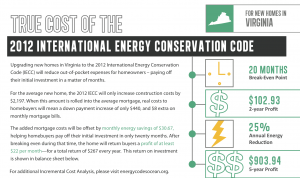
In the most recent State Energy Efficiency Scorecard, the American Council for an Energy Efficient Economy (ACEEE) ranked Virginia 28th in the country on building code regulations, and there is still considerable work to be done.
Currently, the only change to the 2012 residential amendments that has received support from the board is changing the requirement for high efficiency lamps in new homes from 50% to 75% (an improvement the DHCD board declined during the last cycle). VAEEC Governance Board member Andrew Grigsby of the Local Energy Alliance Program (LEAP), has two proposals before the board to require mechanical testing to measure residential building air-tightness and duct leakage (doing away with the visual inspection options). These proposals will be taken up at the next meeting on October 24th along with:
- Commercial energy codes: Maintaining current projection factors and Solar Heat Gain Coefficient (SHGC) formulas and declining weaker 2015 IECC specs for this element.
- Eliminating the credit for on-site generation in the Energy Rating Index compliance option.
- Increasing the requirement for exterior wall insulation from R15 (or R13 cavity + R1 insulated sheathing) to R20 (or 13+5).
Proposals that were voted out unfavorably at the September Codes and Standards Committee:
- Adopting the 2015 IECC without alteration
- updating the attic insulation requirement from R-38 to R-49 (per the 2012 IECC)
- Requiring that replacement windows meet minimum efficiency requirements when a permit is required (per the 2012 IECC)
- Removing an amendment allowing efficiency trade-offs in buildings with less fenestration (per the 2012 IECC)
 The Governor’s Executive Committee on Energy Efficiency has been presented data showing advanced building energy codes should be a vital component for Virginia to meet its goal to reduce energy consumption ten percent by 2020.
The Governor’s Executive Committee on Energy Efficiency has been presented data showing advanced building energy codes should be a vital component for Virginia to meet its goal to reduce energy consumption ten percent by 2020.
Everyone wins when new homes are built to the most cost-effective efficiency standards: consumers, builders, trades, grid operators, and society as a whole. This is why VAEEC continues to support rigorous energy codes.
Upcoming Important Dates:
10/24/16: DHCD board committee meets to approve or reject remaining proposals
11/21/16: DHCD Board meets to adopt draft proposal of new code regulations
Winter 2017: Draft regulations published in the Virginia Register for public comment
February-June 2017: Public comment period on draft regulations
6/19/17: Public Hearing on draft regulations
September and October 2017: DHCD board committees meet to vote on final regulations
November 2017: DHCD board adopts final code regulations
The full DHCD board timeline found here. Or check the DHCD website for details.
We enjoyed the spring meeting last week and hope that you did too. We received many positive remarks on the venue, so we may just have to hold another event at the University of Richmond Jepson Center.
In case you missed it, below are some highlights from the day and links to download the presentations. You can also see photos on our Facebook page — be sure to tag yourself and your colleagues.
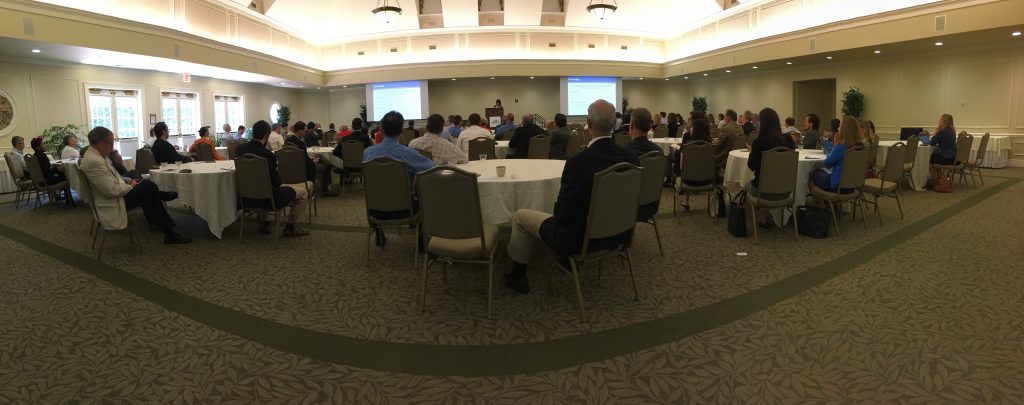
To kick off the event, we unveiled a new logo and website! This took many hours of hard work, and we are pleased with the end result. I hope you will check out the rest of the site while you’re here.
I also ran through some of the key data from the member survey. It’s very clear that you, our members, enjoy being part of a broad coalition that is driving energy efficiency policy and programs in Virginia.
We received positive feedback on our communications and potential new member-only benefits. We also heard that you want more networking and training opportunities such as webinars, so later this month we’ll launch our webinar series. We asked and you answered so the first webinar topic will be on PACE financing. The date is set for June 30 at noon. Details will follow soon.
The VAEEC membership also reappointed 3 of our board members and voted on two new members to expand the board to 13. You can see all of our board members here.
After my remarks, Hayes Framme, from the office of Governor McAuliffe, 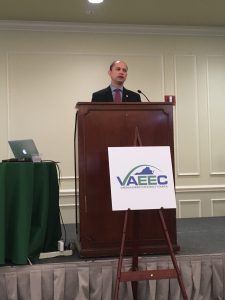 gave an update on the 2016 General Assembly session and the work of the Governor’s Executive Committee on Energy Efficiency (GEC). Hayes told the crowded room about SB 395 and HB 1053, which were bills the Governor initiated. The final outcome for these bills, which wasn’t the initially hoped for outcome (as detailed here), directed the State Corporation Commission to open a public comment period in order to draft a response on the feasibility of developing protocols to verify savings of utility programs. The VAEEC supported these bills during session and our full comments to the SCC can be found here.
gave an update on the 2016 General Assembly session and the work of the Governor’s Executive Committee on Energy Efficiency (GEC). Hayes told the crowded room about SB 395 and HB 1053, which were bills the Governor initiated. The final outcome for these bills, which wasn’t the initially hoped for outcome (as detailed here), directed the State Corporation Commission to open a public comment period in order to draft a response on the feasibility of developing protocols to verify savings of utility programs. The VAEEC supported these bills during session and our full comments to the SCC can be found here.
Hayes also discussed the GEC itself, for which we have a dedicated page on our website as we are a partner of the state energy office in providing support to the GEC’s work.
Next up was John Morrill with Arlington County to discuss the progress of the DEQ stakeholder group that is helping DEQ identify the commonwealth’s compliance path for the Clean Power Plan. John mentioned that consensus was hard to come by among the stakeholders, but more importantly, consensus was reached that all stakeholders like pie. Details were not shared on which kind.
Following the lunch networking break, we picked the agenda back up with 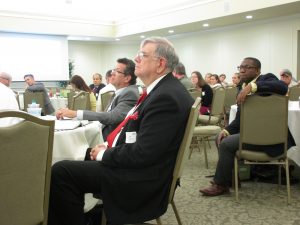 three more presentations. First was Ryan Hodum with David Gardiner & Associates — also our newest member! Ryan presented on two of DGA’s initiatives: Chambers of Innovation for Clean Energy, a program that is engaging local Chambers of Commerce on clean energy issues, and the Alliance for Industrial Efficiency, which which focuses on state and federal industrial energy efficiency policy, primarily on combined heat and power.
three more presentations. First was Ryan Hodum with David Gardiner & Associates — also our newest member! Ryan presented on two of DGA’s initiatives: Chambers of Innovation for Clean Energy, a program that is engaging local Chambers of Commerce on clean energy issues, and the Alliance for Industrial Efficiency, which which focuses on state and federal industrial energy efficiency policy, primarily on combined heat and power.
Next, was the Featured Member of the month. For May, we featured, Pearl Certification. Cynthia Adams, VAEEC’s board chair is CEO of this new company, which helps homeowners save money through energy savings but also helping them recapture some of the value of their home improvement investment if they decide to sell later on.
Our final presentation of the day was by Zack Miller with Virginia Housing Alliance who discussed the initiatives of the Multifamily Energy Efficiency Coalition (MFEEC). Multifamily housing accounts for 12% of Virginia’s total housing stock, equal to 385,000 units. These residences are typically left out of energy efficiency programs, so the coalition is working to advance policies that provide comprehensive energy efficiency services to this sector. The VAEEC and many of our members are proud to be part of this worthwhile initiative.
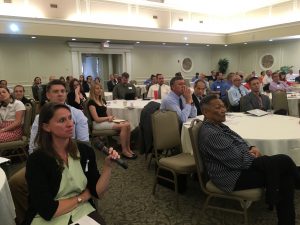 We spent the last 30 minutes of the meeting giving our members the opportunity to brag a little bit. A microphone was sent around for members to give a 2-3 minute update on anything they are working on related to energy efficiency. Dominion Virginia Power, Columbia Gas and Washington Gas all gave updates on their energy efficiency programs and their latest proceedings before the SCC. Several other members gave updates as well including Trane, Viridant, Virginia Community Capital, and Loudon County Public Schools. We are pleased that so many members chimed in to talk about their work.
We spent the last 30 minutes of the meeting giving our members the opportunity to brag a little bit. A microphone was sent around for members to give a 2-3 minute update on anything they are working on related to energy efficiency. Dominion Virginia Power, Columbia Gas and Washington Gas all gave updates on their energy efficiency programs and their latest proceedings before the SCC. Several other members gave updates as well including Trane, Viridant, Virginia Community Capital, and Loudon County Public Schools. We are pleased that so many members chimed in to talk about their work.
Our next member meeting will take place in November where we will hold our first annual Energy Efficiency Champions awards ceremony. Stay tuned for details.
Links to Presentations:
General Assembly Recap and Governor’s Executive Committee on Energy Efficiency Update (Hayes Framme: Virginia’s Chief Energy Efficiency Officer)
Clean Power Plan Update (John Morill: Energy Manager for Arlington County, VAEEC Goverance Board and member of the Governor’s Clean Power Plan Stakeholder Group)
Chambers of Innovation (Ryan Hodum: Vice President, David Gardiner and Associates)
Member Spotlight (Cynthia Adams: Pearl Certification)
Multifamily Housing Coalition Update (Zack Miller: Policy Director, Virginia Housing Alliance)


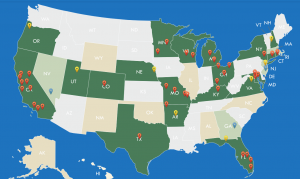

 During the APCO proceeding however,
During the APCO proceeding however, 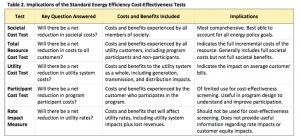

 Now that the General Assembly session has ended, the VAEEC has switched its attention to several of our other priority programs, including the building code update process currently taking place here in Virginia. Southeast Energy News just had a
Now that the General Assembly session has ended, the VAEEC has switched its attention to several of our other priority programs, including the building code update process currently taking place here in Virginia. Southeast Energy News just had a On January 10, 2017, VAEEC and LEAP
On January 10, 2017, VAEEC and LEAP 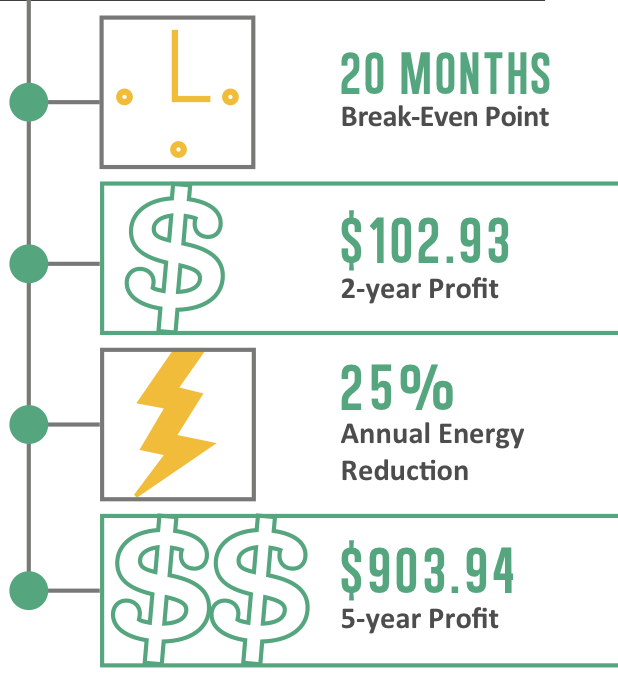
 The board is comprised of 14 members: 11 appointed members who represent Virginia’s congressional districts and three ex-officio members who represent the Virginia Housing Development Authority (VHDA); the Virginia Building Code Officials Association (VBCOA); and the Virginia Fire Services Board (VFSB).
The board is comprised of 14 members: 11 appointed members who represent Virginia’s congressional districts and three ex-officio members who represent the Virginia Housing Development Authority (VHDA); the Virginia Building Code Officials Association (VBCOA); and the Virginia Fire Services Board (VFSB).
 The Governor’s Executive Committee on Energy Efficiency has been presented data showing advanced building energy codes should be a vital component for Virginia to meet its goal to reduce energy consumption ten percent by 2020.
The Governor’s Executive Committee on Energy Efficiency has been presented data showing advanced building energy codes should be a vital component for Virginia to meet its goal to reduce energy consumption ten percent by 2020.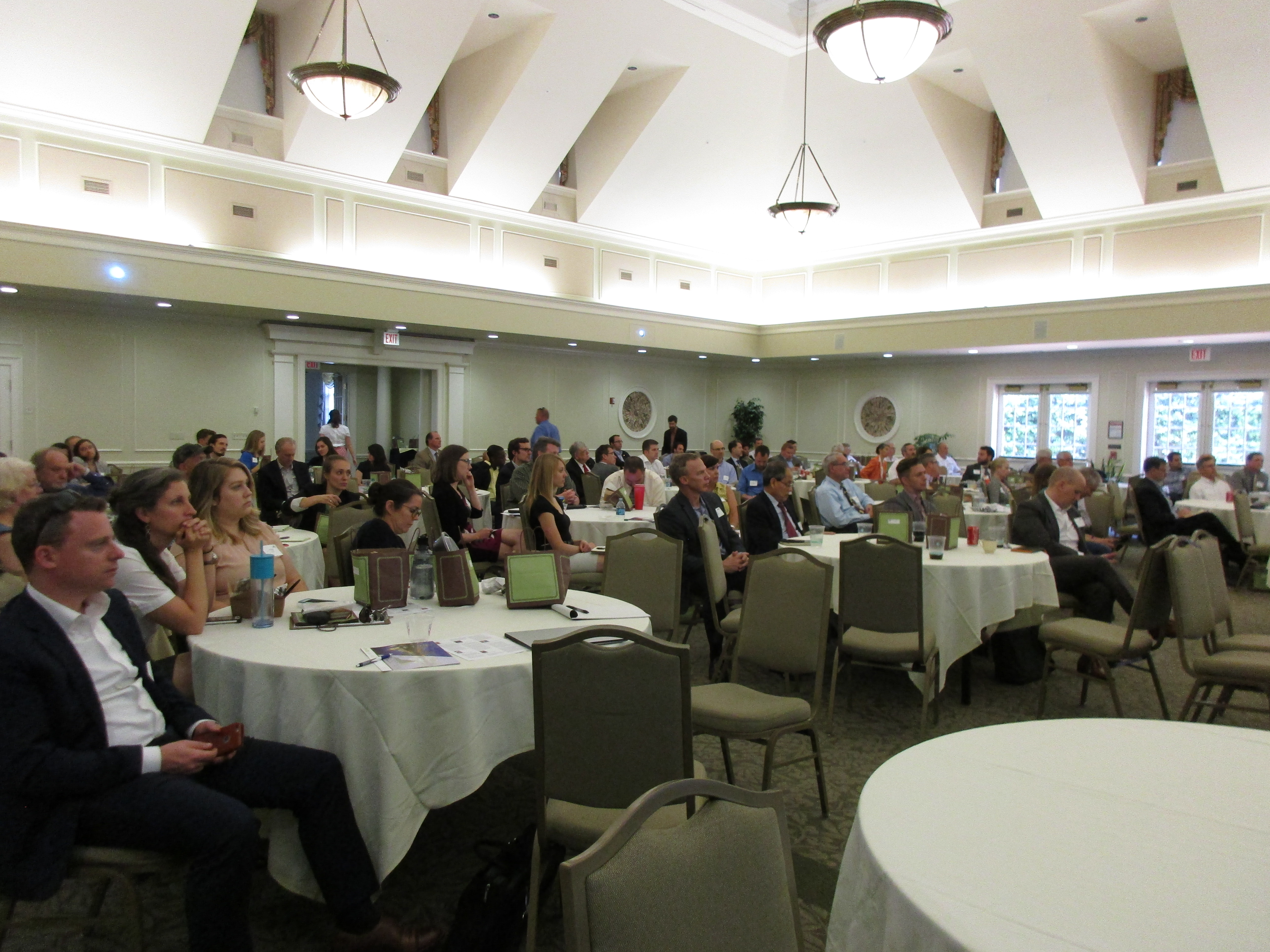

 gave an update on the 2016 General Assembly session and the work of the Governor’s Executive Committee on Energy Efficiency (GEC). Hayes told the crowded room about SB 395 and HB 1053, which were bills the Governor initiated. The final outcome for these bills, which wasn’t the initially hoped for outcome (
gave an update on the 2016 General Assembly session and the work of the Governor’s Executive Committee on Energy Efficiency (GEC). Hayes told the crowded room about SB 395 and HB 1053, which were bills the Governor initiated. The final outcome for these bills, which wasn’t the initially hoped for outcome ( three more presentations. First was Ryan Hodum with David Gardiner & Associates — also our newest member! Ryan presented on two of DGA’s initiatives:
three more presentations. First was Ryan Hodum with David Gardiner & Associates — also our newest member! Ryan presented on two of DGA’s initiatives:  We spent the last 30 minutes of the meeting giving our members the opportunity to brag a little bit. A microphone was sent around for members to give a 2-3 minute update on anything they are working on related to energy efficiency. Dominion Virginia Power, Columbia Gas and Washington Gas all gave updates on their energy efficiency programs and their latest proceedings before the SCC. Several other members gave updates as well including Trane, Viridant, Virginia Community Capital, and Loudon County Public Schools. We are pleased that so many members chimed in to talk about their work.
We spent the last 30 minutes of the meeting giving our members the opportunity to brag a little bit. A microphone was sent around for members to give a 2-3 minute update on anything they are working on related to energy efficiency. Dominion Virginia Power, Columbia Gas and Washington Gas all gave updates on their energy efficiency programs and their latest proceedings before the SCC. Several other members gave updates as well including Trane, Viridant, Virginia Community Capital, and Loudon County Public Schools. We are pleased that so many members chimed in to talk about their work.